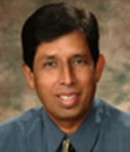
Plenary Lecture
Electric Battery Storage for Hybrid Vehicles: State-of-the-Art Review and Challenges

Professor Pradip Majumdar
Department of Mechanical Engineering
Northern Illinois University
USA
E-mail: pmajumdar@niu.edu
Abstract: Development of hybrid electric vehicles is of great interest to the transportation industry due to increased demand and cost of gasoline and diesel oil, uncertainty in the steady supply of oil, and increased standards for reduced emissions. This necessity for reducing fuel consumption and emissions led to the development of the concept of hybrid electric vehicles which is dual powered by gasoline or diesel engines with larger battery, hybrid powertrain and electric motors. This leads to improved performance, lower gas consumptions and lower CO2 emission. Electrical energy is lost from electric vehicles in the form of heat during dynamic braking. Recovering this energy using a regenerative braking system and storing it in battery stacks and using it later for propulsion and acceleration can improve the overall efficiency and reduction of fuel consumption. Lithium-Ion batteries are considered as one of the leading types as compared to the other batteries for the battery systems to be employed in electric vehicles (EVs) or hybrid electric vehicles (HEVs). Some of the major challenges with the full-scale commercial use of Lithium-ion batteries for electric or hybrid vehicles are the requirement of high energy and power densities, compatibility with high charge and discharge rates for different load cycles while maintaining high performance, and prevention of any thermal runaway conditions. Recent research and development activities, major technical issues and future research focus of electric battery are reviewed. Experimental, modeling and simulation analysis is presented for electrochemical and thermal characterization of a lithium-ion battery subject to a range of charge and discharge loading, and thermal environmental conditions.
Brief Biography of the Speaker: Pradip Majumdar is a Professor of Mechanical Engineering, Director of Heat and Mass Transfer laboratory, and Director of Undergraduate studies in the Department of Mechanical Engineering, Northern Illinois University, DeKalb, Illinois. He received his BS in mechanical engineering form B.E College, University of Calcutta, and MS and Ph.D. in mechanical engineering from Illinois Institute of Technology, Chicago. He has worked as a design engineer on a Nuclear power plant project for DCL in Bombay, India from 1975-1977. His specialty and research activities include Thermo-fluid Sciences, Computational Fluid Dynamics (CFD) and Heat Transfer; Fuel Cell Energy and Battery Storage System, Solar Thermal Energy Systems; Hydrogen storage; Heat and Mass Transfer in Porous Media; Micro-Nanoscale Fluid Flow and Heat transfer; High Heat Flux Electronics Cooling, High Energy Laser Material Processing, CFD Analysis of Scour Formation, Blood flow in Human Arteries and Stent Design, and Laser Treatment of Tumors. He has published over 90 peer reviewed technical papers in archival journals and conference proceedings. He has received 2008 Faculty of the year award from NIU. He has published a book on Computational Methods for Heat and Mass Transfer. He is also the author of an upcoming book on Fuel Cell. He is serving as the Editor-in-Chief for Transactions on Fluid Mechanics. He served as a guest editor for special issues on advances in electronics cooling in the Journal of Electronics Manufacturing. As a member of ASME, he has serves on the technical committee for Computational Heat Transfer, Heat Transfer on Electronics and Energy Systems. He has organized and chaired many ASME and InterPack conferences sessions on Fuel Cells, Micro-Nano Scale Heat Transfer, Electronics Cooling and Computational Heat Transfer.